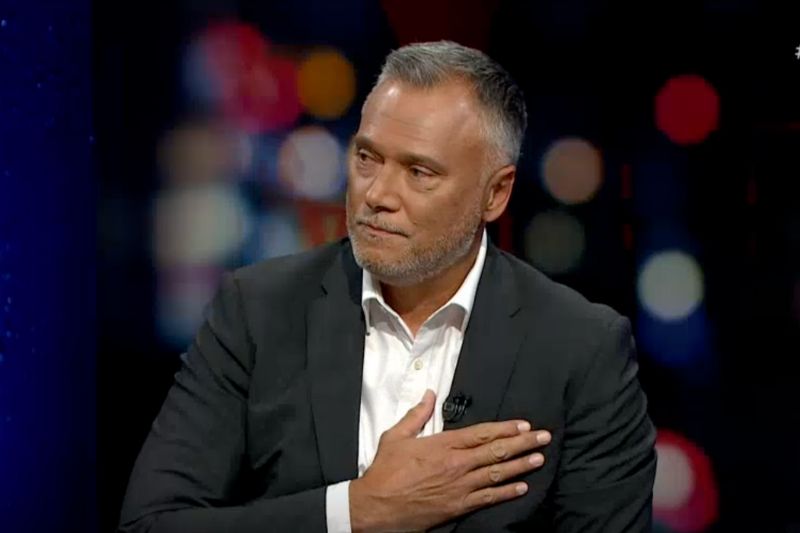Like many Australians, I was dismayed by Stan Grant’s decision to stand down from his work with the ABC. Dismayed for him at the racist abuse that he had suffered. Dismayed for us as a community that he should have been so unsupported. Dismayed for Australia that his argument that racism is entrenched in Australia was once again verified. Dismayed for myself that one of the most consistently stimulating public intellectuals in Australia should be so silenced.

In comparison with this loss the debate about who was responsible for the vilification of Grant and their reasons is sterile. For what it is worth, responsibility has been imputed to a number of factors. It has been attribute an innate racism in Australia that is always ready to vent. It has been attributed to various failings of the ABC. The public broadcaster is accused of having acted partially in encouraging anti-monarchist views in its coverage of King Charles’ coronation, failing to support Grant against the abuse that he suffered, and not being a respectful place for Indigenous or immigrant staff, or has allowing its employees to breach the distinction between reporting and opinion. Others have attributed responsibility to the coverage by News Limited. Certainly, the ABC have deplored the vilification and have apologised for not defending Grant. For all its faults, however, the ABC is popularly regarded as more reliable for its coverage of important events than the commercial media.
Perhaps a more salient contemporary confusion lies between the roles both of journalists and commentators as contributors to media and as catalysts for a social media pile-on. In this case, the two roles were clearly connected. Whether causally or only consecutively connected is open for discussion.
These issues, however, are only incidental. The point is that a good man, a proud Indigenous man, has been so wounded by the racial abuse directed at him for his criticism of ingrained racism in Australia that he has temporarily withdrawn from public life. As we move towards the Referendum on the Voice that is a chastening reminder of our nation’s history and of our responsibilities.
It is also a time to celebrate what Stan Grant has given to public life through his thought and writing and to lament what we might hope will be its only temporary loss. Whereas the response of most columnists to current events is predictable, I have found Grant’s reflections on public life and on current issues constantly surprising. Even if I could anticipate many of his judgments on such issues as Indigenous history in which he had been a protagonist, he always offered fresh insights, judgments and possibilities. He brought to any issue that he discussed the fruit of broad experience in and outside Australia. He took topics out of their merely local context to a broader and more universal level.
Grant’s perception of Australian history and culture was enriched by his wide reading both of contemporary Australian affairs and of the cultural, political and economic strands of Western civilisation. Although he was focused on his own Indigenous history and culture, he explored more broadly the wellsprings of the culture that the European invaders brought with them and which shaped their treatment of the First Peoples. That double perspective also illuminated his reflections on Australian attitudes to China and on the simplistic framing of international relationships as a contest between freedom and totalitarianism.
'The point is that a good man, a proud Indigenous man, has been so wounded by the racial abuse directed at him for his criticism of ingrained racism in Australia that he has temporarily withdrawn from public life.'
The most valuable gift of Stan Grant’s writing to me has lain in his generous invitation to enter the world of Indigenous Australians from within. His sharing of the feelings and wounds that underlay his life as an Indigenous Australian challenged any of my generalised, dismissive, and ignorant attitudes and judgments based in ignorance and in lack of empathy. He drew us outsiders into his world. He also made us appreciate the depth of the conversion of heart and mind that would be needed to open the path to reconciliation. Only getting the words right would never be enough.
Stan Grant’s gifts are those of the public intellectual. They are rare gifts, and for that reason even their temporary withdrawal from society is unfortunate. That his withdrawal was caused by people who were not his peers in intelligence or in character is infuriating. The term public intellectual usually denotes a person whose home is academia, who is at home with research, and who from it enters public conversation in order to illuminate and to persuade a wider, non-specialist audience. Such people are indispensable. Grant, too, has some of these formal qualities – he has taught in universities and has written books. His gift to public conversation has been to come from a world distant from academia and to bring to educated Australians the sensibility and the insights of a person who remains in mind, heart, experience, sensitivity and memory an Indigenous Australian.
These are the kind of remarks we might expect in a eulogy. They are not written as a farewell, however, but as a thank-you and in hope that Stan Grant will experience the encouragement that will allow him revitalised to return to public life.
Andrew Hamilton is consulting editor of Eureka Street, and writer at Jesuit Social Services.